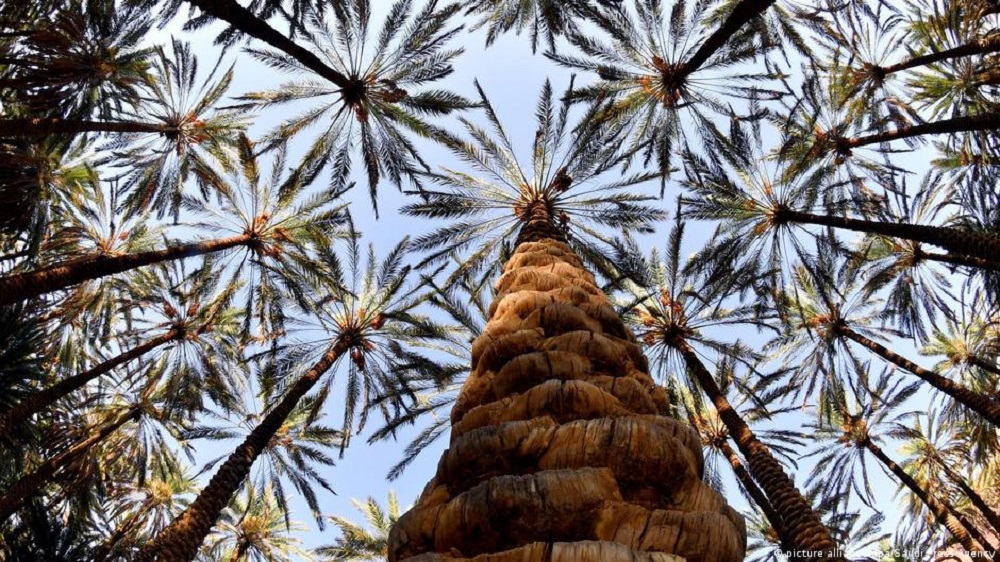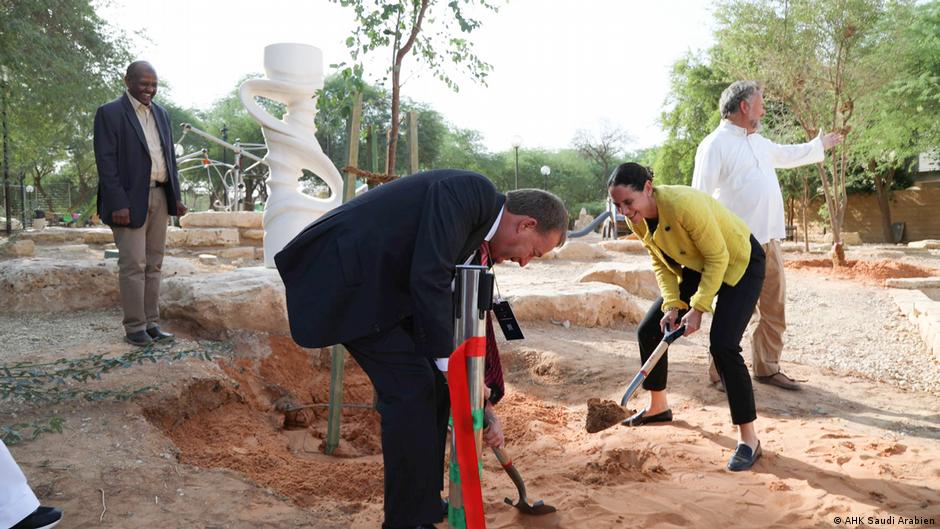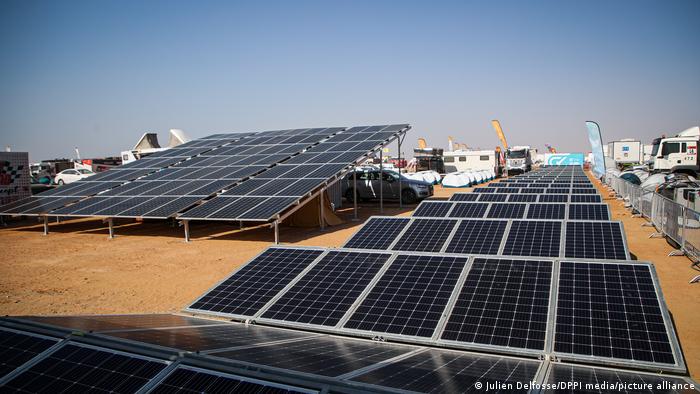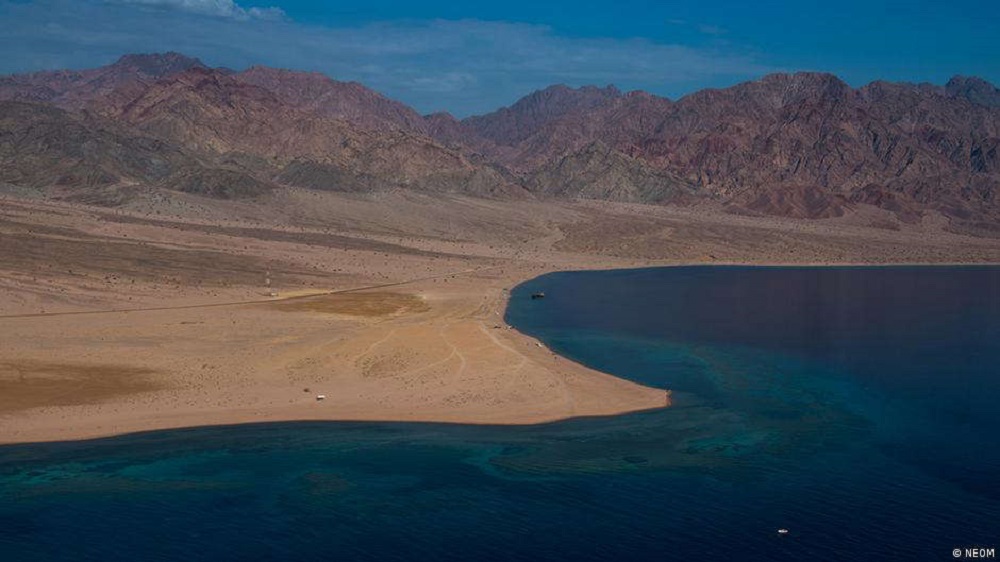Saudi Arabia's climate strategy – greenwashing or genuine transformation?

It was a regular hot and sunny day in late October in Riyadh, when Dalia Samra-Rohte, delegate of the German Industry & Commerce for Saudi Arabia, and Germany's ambassador to the kingdom, Dieter Lamle, were busy planting a crown-of-thorns sapling in Boedeker Park.
It won't be growing tall alone – earlier this year, the Saudi kingdom revealed plans to plant 7.5 million trees in Riyadh, and 450 million trees across the country.
Saudi Arabia might be a Middle Eastern country with a harsh desert climate, best known for its vast oil reserves, but right now it appears to be riding a green wave.
In the runup to the Glasgow climate summit COP26, Saudi Arabia held its own regional environmental conference. At the summit, Crown Prince Mohammed Bin Salman, commonly referred to as MbS, announced a "net-zero" greenhouse gas emissions plan by 2060, as a pillar of the new "Saudi Green Initiative". A further regional initiative has been started under the name "Middle East Green Initiative".
The kingdom will also be ramping up a Circular Carbon Economy approach, CCE for short, which involves capturing and storing carbon dioxide and thus removing 200 million tons of carbon emissions from the atmosphere through a "reduce, reuse, recycle and remove" strategy.

More than a PR strategy
Saudi Arabia is the world's top oil exporter, the oil and gas sector accounts for around 50% of its GDP. Environmentalists are therefore sceptical about its sudden repositioning. Some experts believe the country is genuinely committed to steering a new course but question its motivation.
"Everything that is now being heard from Saudi Arabia, including what has emerged in recent years, does not deserve to be generalised as greenwashing," said Tobias Zumbraegel, researcher at the Bonn-based Center for Applied Research in Partnership with the Orient (CARPO), in interview. "That's too simple, as we can see a comprehensive transformation process that goes well beyond a PR campaign."
But the transformation is not necessarily driven by love for the planet. The global oil price has been volatile, and international pressure to become carbon neutral has increased since the Paris Climate Agreement in 2015.
"Saudi Arabia's sustainability agenda has very little to do with environmental protection or an inherent interest in advancing ecological endeavours," said Zumbraegel. He sees the process as a way for the leadership to get "political leeway" and sees it as serving "economic interests".
Others also have reservations about Saudi Arabia's green credentials.
Karim Elgendy, associate fellow with the London-based think tank Chatham House and founder of Carboun, an advocacy initiative promoting sustainability in cities of the MENA region, highlighted in an op-ed for Aljazeera that the "Saudi climate commitments are conditional on its ability to maintain its fossil fuel exports".
Oil experts and environmental protection?
The Saudi Energy Minister, Prince Abdulaziz bin Salman – brother of Crown Prince Mohammed bin Salman – has confirmed the kingdom's position. "The kingdom's economic growth is driven by export of its energy sources. It's no state secret," he said at the recent Saudi Green Initiative Forum in Riyadh.
Underscoring that point, the national oil company Saudi Aramco, the world's biggest oil company, is also one of the world's most profitable companies. In the third quarter of 2021, it left the likes of Google, Amazon, ExxonMobil and Shell behind to take the top spot.
However, critics point out that, at the beginning of this year, a review of public filings by climate news and data portal Bloomberg Green showed that the oil giant "excludes emissions generated from many of its refineries and petrochemical plants in its overall carbon disclosures". It went on to say that "including all such facilities might nearly double Aramco's self-reported carbon footprint".

In addition, only a few days before the latest announcement, Aramco had confirmed its plans to increase crude oil production from 12 million barrels a day to 13 million by 2027 – which is exactly the opposite of what scientists and environmentalists request.
Aramco, however, still promises, in accordance with the new net-zero vision, to be carbon neutral by 2050.
Renewed, not new
And yet it is not the first time that the kingdom has pushed for more environmental sustainability. Previous initiatives were launched under King Salman bin Abdul-Aziz' predecessor, King Abdullah, some 10 years ago, including the creation of the King Abdullah City for Atomic and Renewable Energy, a leading energy institute.
"But back then, there were still different political blocs within the royal family, including hard-liners who said, 'no, we don't believe in climate change at all'," revealed Zumbraegel, adding that Abdullah's initiatives were discontinued when he died in 2015.
In contrast, these days a clear, hierarchical and close-knit network of central figures of the same family support the new climate initiatives.
"In other words, sustainability has now become a key issue for the royal family," Zumbraegel said.
And with Crown Prince Mohammed bin Salman stepping into the ring of carbon-neutral competitors in the Middle East, illustrated by his attendance at the COP26 climate summit, push has also come to shove for the whole region, with Saudi Arabia competing with the United Arab Emirates to burnish their climate credentials.

Criticism from Joe Biden
The start of the climate conference, however, proved quite bumpy for Saudi Arabia. At the G20 summit held shortly before in Rome, U.S. President Joe Biden also indirectly criticised Saudi environmental protection policy. "More needs to be done. But to do that, we have to continue to focus on what China is not doing, what Russia is not doing and what Saudi Arabia is not doing," Biden said at a press conference at the end of the G20 summit, which concluded shortly before the start of the world climate conference in Glasgow.
At the same time, it leaked out that the Saudi side had apparently tried to change a plea by the Intergovernmental Panel on Climate Change (IPCC), in which the panel called for an active phase-out of the use of fossil fuels - the core business of the Saudis. So far, Saudi Arabia has not commented on the publication in question.
Concern over water
"For the Saudis, there is no contradiction: you can export oil in the long term, but you do it all cleanly," says expert Zumbrägel. He said he expects there to be a number of new mega projects in Saudi Arabia in the renewable energy sector in the next few years. Among them is the emerging test-tube city of Neom - a showcase environmental protection project. The main problem for the desert state: lack of fresh water. And so work is underway to increase the efficiency of treatment and desalination plants.
The freshly planted little tree in Riyadh's park will certainly benefit from this. Because one thing is already certain: large amounts of water will be needed to irrigate the 450 million new trees with which Saudi Arabia wants to green itself.
© Deutsche Welle 2021
You may also like:
Biodiesel production: Destroying Indonesia's virgin forests to protect the climate?
Islam and single-use plastics: Appealing to Indonesia's Muslims
Islam, environment and sustainability: "The environmental crisis is also a spiritual crisis"
